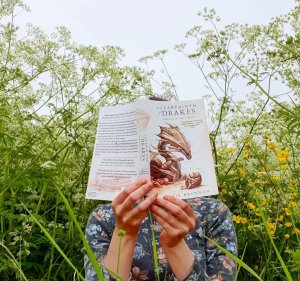It's not often you get a great adaptation of a great novel that has so much scope and a rich story to tell, but I think Pachinko is a rather successful adaptation and handles the subject matter well. It's a big novel that leaves a lot behind once the reading is over and is a true family story that spans generations through Japanese colonial rule over Korea and then as uprooted and anxious immigration to Japan and what follows that second-class citizenship.
The cast, sets, cinematography, and costumes are all excellent, and each episode feels like a short film in a sense. However, we only got to see part of this big story in this first season. The pace of the story is slow, but the story never seems to drag its feet or lose too much focus on the story it wants to tell us.
How the story moves between periods isn't always too clear, but the show often gives viewers notice of where they are in the story. Even though past and present events certainly mirror each other in certain places and explain the characters and their hidden backstories it does feel a bit choppy at times. But because of this time jumps that the story leaves some of these storylines a bit short or they feel rougher around the edges than one would have liked.
There are also certain characters, moments, or backstories that the story focuses on that are less interesting than others – but there was also a thing I noticed from the book. The story certainly shines brightest when focusing on the perspectives of the women in the story and Sunja, the matriarch, truly has all my heart. How much these women fought for their family's survival even though their lives suffered is breathtaking and it makes sense for the show to not beautify those things too much since they're based on real events.
Both the book and the episodes tell a story that is rather realistically depressing, but not necessarily in a totally crude or bleak way. It's a story about endurance and finding a way to thrive despite everything, and it certainly works for every tear the show squeezes out of you – and oh boy, where there are lots of tears. There really is not a big happy ending for any of the characters, they just have to keep fighting for their lives and hope that's enough until the end.
This is a great exploration of culture and life, but also the loss of it. The story is quite thought-provoking and poignant, pulling at your heartstrings with its realism and resilience of the characters, allowing the audience to confront the reality these characters live in. The scope of the story is epic, although the story manages to feel intimate and personal. This season successfully gives the viewer a pretty open ending to the story just in case there is no follow-up and the story doesn't get another season, despite having so much more to say.
The cast, sets, cinematography, and costumes are all excellent, and each episode feels like a short film in a sense. However, we only got to see part of this big story in this first season. The pace of the story is slow, but the story never seems to drag its feet or lose too much focus on the story it wants to tell us.
How the story moves between periods isn't always too clear, but the show often gives viewers notice of where they are in the story. Even though past and present events certainly mirror each other in certain places and explain the characters and their hidden backstories it does feel a bit choppy at times. But because of this time jumps that the story leaves some of these storylines a bit short or they feel rougher around the edges than one would have liked.
There are also certain characters, moments, or backstories that the story focuses on that are less interesting than others – but there was also a thing I noticed from the book. The story certainly shines brightest when focusing on the perspectives of the women in the story and Sunja, the matriarch, truly has all my heart. How much these women fought for their family's survival even though their lives suffered is breathtaking and it makes sense for the show to not beautify those things too much since they're based on real events.
Both the book and the episodes tell a story that is rather realistically depressing, but not necessarily in a totally crude or bleak way. It's a story about endurance and finding a way to thrive despite everything, and it certainly works for every tear the show squeezes out of you – and oh boy, where there are lots of tears. There really is not a big happy ending for any of the characters, they just have to keep fighting for their lives and hope that's enough until the end.
This is a great exploration of culture and life, but also the loss of it. The story is quite thought-provoking and poignant, pulling at your heartstrings with its realism and resilience of the characters, allowing the audience to confront the reality these characters live in. The scope of the story is epic, although the story manages to feel intimate and personal. This season successfully gives the viewer a pretty open ending to the story just in case there is no follow-up and the story doesn't get another season, despite having so much more to say.
Esta resenha foi útil para você?








